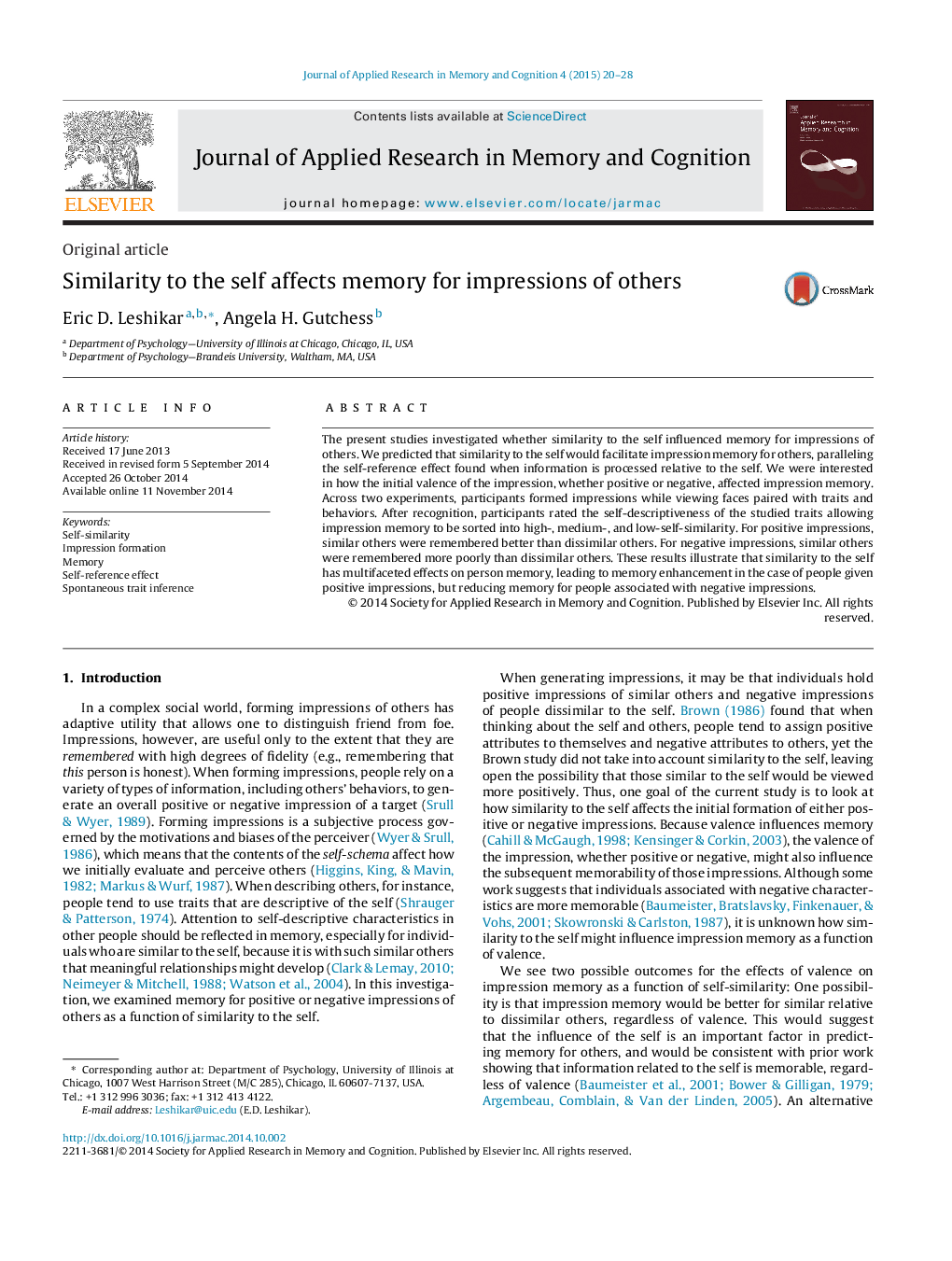| Article ID | Journal | Published Year | Pages | File Type |
|---|---|---|---|---|
| 881597 | Journal of Applied Research in Memory and Cognition | 2015 | 9 Pages |
•For positive impressions, similar others were remembered better than dissimilar others.•For negative impressions, similar others were remembered more poorly than dissimilar others.•Impression memory was not strongly related to memory for other types of person-related details.
The present studies investigated whether similarity to the self influenced memory for impressions of others. We predicted that similarity to the self would facilitate impression memory for others, paralleling the self-reference effect found when information is processed relative to the self. We were interested in how the initial valence of the impression, whether positive or negative, affected impression memory. Across two experiments, participants formed impressions while viewing faces paired with traits and behaviors. After recognition, participants rated the self-descriptiveness of the studied traits allowing impression memory to be sorted into high-, medium-, and low-self-similarity. For positive impressions, similar others were remembered better than dissimilar others. For negative impressions, similar others were remembered more poorly than dissimilar others. These results illustrate that similarity to the self has multifaceted effects on person memory, leading to memory enhancement in the case of people given positive impressions, but reducing memory for people associated with negative impressions.
